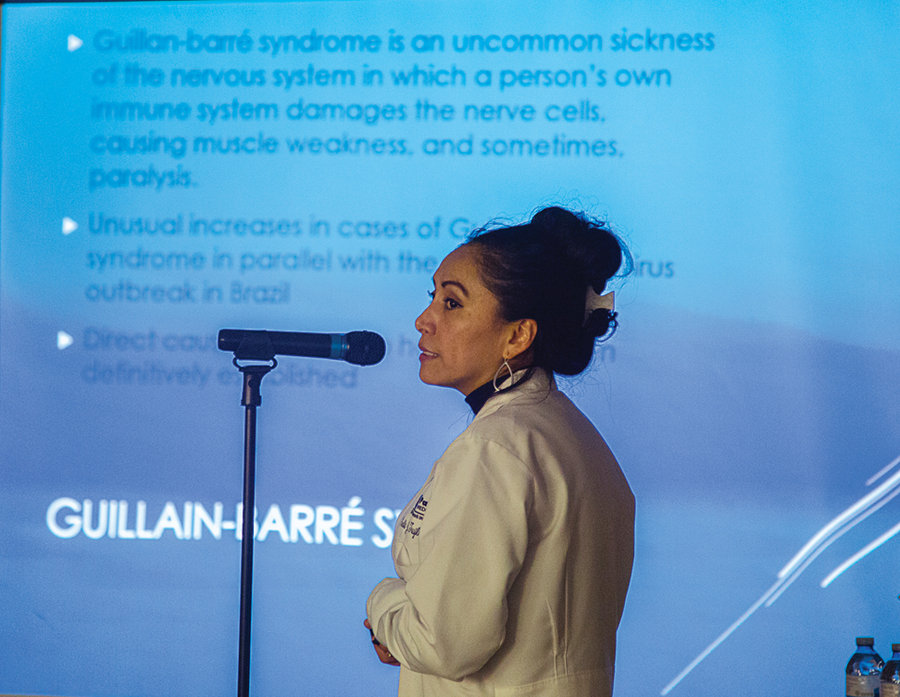The zika virus, which is spread by mosquitos, sexual contact, or fluids like breast milk, can prove dangerous to a pregnant woman’s unborn fetus. While officials have not reported any local cases yet, on Feb. 1, the World Health Organization (WHO) declared Zika virus a public health emergency of international concern.
Wednesday night, Hackensack UMC Palisades and the North Bergen Public library hosted a seminar for the public about zika – the first such seminar in a monthly health series that they will be providing at the library.
The monthly seminar, “Well Wednesdays” will include free education, snacks and drinks, and transportation from North Bergen’s downtown library. The purpose is to provide free health education and resources to the community.
There are unknown factors that doctors don’t understand about infected pregnant women.
____________
What is zika?
Zika virus is spread to people primarily through the bite of an infected Aedes species mosquito. It is in the blood, and can spread through semen, saliva, amniotic fluid, and breast milk. The virus usually can spread six weeks after the person is infected.
There is no vaccine or treatment for zika. Instead people are treated to relieve common symptoms like headache, rash, red eyes, rehydration, and fever. These symptoms are similar to flu, Dr. Trujillo-Carvalho said; therefore bloodwork is required for a proper diagnosis.
She said that often, the infection causes no symptoms or long-term harm, but the focus is mainly on pregnant women who become infected and develop a rare, temporary form of paralysis that causes the immune system to attack the body’s nerve cells.
According to Dr. Trujillo-Carvalho’s presentation, research is still being done on zika, and there are unknown factors that doctors don’t understand about infected pregnant women. It is unknown how likely a pregnant woman is to contract the virus, or how likely it is to pass to her fetus, and they don’t know when the fetus will develop birth defects if infected.
What doctors do know is how to try to prevent infection.
Travel should be limited or avoided for a pregnant woman and her partner in order to prevent infection. Any pregnant patient should consult a doctor before traveling. A few areas with past or current evidence of zika are Mexico, Hawaii, Brazil, or India.
Other tips for prevention provided by the CDC include wearing long sleeved shirts, staying indoors with air conditioning and closed windows or screens, and sleeping under mosquito nets and keeping baby strollers covered with them.
What happens to fetus?
According to Dr. Trujillo-Carvalho, infected pregnant women have been associated with fetal loss in the first trimester. Complications in the fetus begin in the first trimester as well, like microcephaly, in which the baby’s head and brain are smaller than expected.
If a pregnant woman is infected, she should have three types of laboratory testing the within the first four to seven days. Laboratory testing isn’t common for the virus and is only done by a few state health departments, Pan American Health Organization, World Health Organization, and the United States Center for Disease Control and Prevention.
Future seminars may touch upon topics such as men’s health and breast cancer.
Samantha Meyers can be reached at samantham@hudsonreporter.com .
